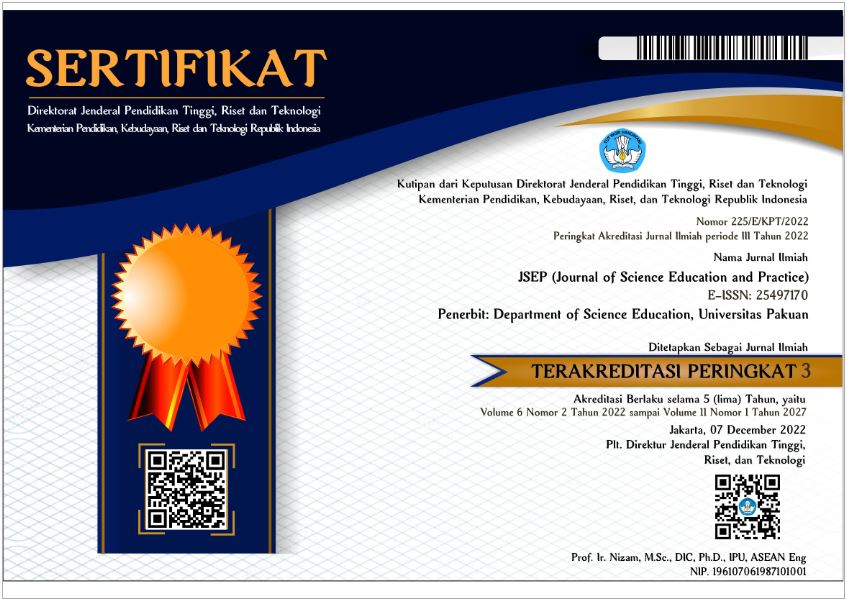ADDITIONAL MENU
EXPLORING COGNITIVE CONTROL PROCESSES OF YOUNG ADULTS IN MULTITASKING ACTIVITIES: A SCIENTIFIC PERSPECTIVE
Abstract
Doing multiple activities at the same time is something that most people are familiar with. Therefore, the cognitive control process is an important cognitive mechanism in regulating and controlling human mental activity. This process involves the ability to process information, allocate cognitive resources, control attention, and make decisions. This research is a cognitive science study conducted through a simulation involving three young adults at a university in Bandung as participants. Each participant followed a structured simulation with the same rules. In an effort to collect data, the researcher collected data using a journaling method with self-report technique. This study aims to analyze the picture that occurs from the cognitive process in response to young adults multitasking activities. The cognitive control process has benefits to help individuals in doing several tasks at the same time so that it will save time and make activities run more effectively. Based on the results of this study, it was found that almost all young adults described complicated cognitive processes in multitasking activities and had difficulty completing the activity objectives to the fullest. However, through cognitive control, it was found that two subjects were finally able to complete the task by choosing one of the activities that should be done quickly and accurately in their thought process.
Keywords
References
Azis, T. N. (2019). Strategi pembelajaran era digital. Annual Conference on Islamic Education and Social Sains (ACIEDSS 2019), 1(2), 308–318.
Braisby, N., & Gellatly, A. (2012). Cognitive Pschology.
Braver, T. S. (2012). The variable nature of cognitive control: A dual mechanisms framework. Trends in Cognitive Sciences, 16(2), 106–113. https://doi.org/10.1016/j.tics.2011.12.010
Buser, T., & Peter, N. (2012). Multitasking. Experimental Economics, 15(4), 641–655. https://doi.org/10.1007/s10683-012-9318-8
Carrier, L. M., Rosen, L. D., Cheever, N. A., & Lim, A. F. (2015). Causes, effects, and practicalities of everyday multitasking. Developmental Review, 35, 64–78. https://doi.org/10.1016/j.dr.2014.12.005
Caudle, M. M., Spadoni, A. D., Schiehser, D. M., Simmons, A. N., & Bomyea, J. (2023). Neural activity and network analysis for understanding reasoning using the matrix reasoning task. Cognitive Processing, 24(4), 585–594. https://doi.org/10.1007/s10339-023-01152-2
Checa, P., & Fernández-Berrocal, P. (2015). The role of intelligence quotient and emotional intelligence in cognitive control processes. Frontiers in Psychology, 6(DEC), 1–8. https://doi.org/10.3389/fpsyg.2015.01853
Danuri, M. (2019). Development and transformation of digital technology. Infokam, XV(II), 116–123.
DeLisi, M. (2018). Routledge International Handbook of Psychopathy and Crime. In Routledge International Handbook of Psychopathy and Crime. https://doi.org/10.4324/9781315111476
Eysenck, M. (2020). Blackwell Dictionary Of Cognitive Edited by.
Gratton, G., Cooper, P., Fabiani, M., Carter, C. S., & Karayanidis, F. (2018). Dynamics of cognitive control: Theoretical bases, paradigms, and a view for the future. Psychophysiology, 55(3), 1–29.
https://doi.org/10.1111/psyp.13016
Groome, D., Brace, N., Edgar, G., Edgar, H., Eysenck, M., Gobet, F., Law, R., Manly, T., Ness, H., Pike, G., Scott, S., & Styles, E. (2021). An Introduction to Cognitive Psychology: Processes and Disorders Fourth Edition. In An Introduction to Cognitive Psychology: Processes and Disorders. https://doi.org/10.4324/9781351020862
Gusril, A. (2021). Problem Remaja Putus Sekolah Di Jorong Kubang Landai Nagari Saruaso Kabupaten Tanah Datar. IAIN Batusangkar.
Lubis, R. (n.d.). Dlsusun Oleh : In Psikologi Eksperimen. Universitas Medan Area.
Luna, B., Marek, S., Larsen, B., Tervo-Clemmens, B., & Chahal, R. (2015). An Integrative Model of the Maturation of Cognitive Control. Annual Review of Neuroscience, 38, 151–170. https://doi.org/10.1146/annurev-neuro-071714-034054
Mackie, M. A., Van Dam, N. T., & Fan, J. (2013). Cognitive control and attentional functions. Brain and Cognition, 82(3), 301–312. https://doi.org/10.1016/j.bandc.2013.05.004
Muammar. (2016). Membaca Permulaan di Sekolah Dasar. In Revista Brasileira de Linguística Aplicada (Vol. 5, Issue 1). https://revistas.ufrj.br/index.php/rce/article/download/1659/1508%0Ahttp://hipatiapress.com/hpjournals/index.php/qre/article/view/1348%5Cnhttp://www.tandfonline.com/doi/abs/10.1080/09500799708666915%5Cnhttps://mckinseyonsociety.com/downloads/reports/Educa
Munakata, Y., Snyder, H. R., & Chatham, C. H. (2012). Developing Cognitive Control: Three Key Transitions. Current Directions in Psychological Science, 21(2), 71–77. https://doi.org/10.1177/0963721412436807
Ophir, E., Nass, C., & Wagner, A. D. (2009). Cognitive control in media multitaskers. Proceedings of the National Academy of Sciences of the United States of America, 106(37), 15583–15587.
https://doi.org/10.1073/pnas.0903620106
Praptanti, I., & Noorliana. (2017). Analisis Kemampuan Menulis Argumentasi pada Makalah Ilmiah Mahasiswa Farmasi Universitas Muhamadiyah Purwokerto. JSSH (Jurnal Sains Sosial Dan Humaniora), 1(2), 137. https://doi.org/10.30595/jssh.v1i2.1856
Purwandari, G., Winata, W., & Suradika, A. (2021). Pemberdayaan pendidikan melalui kegiatan pojok membaca di Rawakalong. Prosiding Seminar Nasional …, 1–7.
https://jurnal.umj.ac.id/index.php/semnaskat/article/view/7991
Schroder, H. S., Moran, T. P., Donnellan, M. B., & Moser, J. S. (2014). Mindset induction effects on cognitive control: A neurobehavioral investigation. Biological Psychology, 103(1), 27–37.
https://doi.org/10.1016/j.biopsycho.2014.08.004
Spink, A., Cole, C., & Waller, M. (2008). Multitasking behavior. Annual Review of Information Science and Technology, 42, 93–118.
https://doi.org/10.1002/aris.2008.1440420110
Van Veen, V., & Carter, C. S. (2006). Conflict and cognitive control in the brain. Current Directions in Psychological Science, 15(5), 237–240. https://doi.org/10.1111/j.1467-8721.2006.00443.x
Wagemans, J. (2004). Cognitive Psychology. In Encyclopedia of Social Measurement. https://doi.org/10.1016/B0-12-369398-5/00480-1
Wager, T. D., Jonides, J., & Reading, S. (2004). Neuroimaging studies of shifting attention: A meta-analysis. NeuroImage, 22(4), 1679–1693.
https://doi.org/10.1016/j.neuroimage.2004.03.052
Wen, T., Liu, D. C., & Hsieh, S. (2018). Connectivity patterns in cognitive control networks predict naturalistic multitasking ability. Neuropsychologia, 114(May), 195–202. https://doi.org/10.1016/j.neuropsychologia.2018.05.002
Widodo, A., Kadir Jaelani, A., Novitasari, S., Sutisna, D., & Erfan, Mu. (2020). Nalisis Kemampuan Menulis Makalah Mahasiswa Baru Pgsd Universitas Mataram. Jurnal Didika: Wahana Ilmiah Pendidikan Dasar, 6(1), 77–91. https://doi.org/10.29408/didika.v6i1.1946
Witanto, J. (2018). Rendahnya Minat Baca. Dkpus.Babelprov.Go.Id, April, 1–14. https://www.researchgate.net/publication/324182095
DOI: 10.33751/jsep.v8i1.9679
 Abstract views : 439
Abstract views : 439
Refbacks
- There are currently no refbacks.
Copyright (c) 2024 JSEP (Journal of Science Education and Practice)

This work is licensed under a Creative Commons Attribution 4.0 International License.












